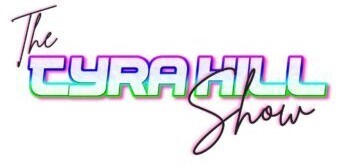

I had a friend ask me about protein today. She wanted to know about protein shakes. So for Promise and the rest of you, here’s the facts…….
The only stimulus to make muscles larger and stronger is to stretch them while they contract against resistance. When you lift a heavy weight, your muscles start to stretch before they start to contract. This tears the muscle and causes soreness on the next day. If you rest and let the muscle heal, it will be stronger than before you stretched it. You improve by performing hard workouts so your muscles can grow and heal while you recover on your easy days.
Anything that helps you recover faster from a hard workout will allow you to do more work to make you stronger. Scientists have known for years that you recover faster by eating immediately after you finish your hard workout. Now we know that eating extra protein helps you recover even faster. Muscles are made primarily from protein building blocks called amino acids. Muscles heal from a hard workout when amino acids and other nutrients travel from your bloodstream into the muscles. Eating any food, particularly foods with plenty of protein, immediately after you finish your workout helps your muscles heal faster so you can do more work. The sooner you eat protein after you finish your hard workout, the quicker you will recover.
However, you don’t need to take expensive supplements; ordinary foods provide high-quality protein and taste better. I am against putting unnecessary chemicals and processed foods in your body. Also once you get done with the supplements, you still have to eat. Learn to use your food. Remember, your body cannot store extra protein. If you don’t need all of the protein you have eaten, it is broken down into ammonia and organic acids, which are used for energy. Any excess is stored as fat.
How much protein do we need?
Our protein needs depend on our age, size, and activity level. The standard method used by nutritionists to estimate our minimum daily protein requirement is to multiply the body weight in pounds by .37. This is the number of grams of protein that should be the daily minimum. According to this method, a person weighing 150 lbs. should eat 55 grams of protein per day, a 200-pound person should get 74 grams, and a 250-pound person should eat 92 grams.
What have we learned?
1. Extra protein is only needed to recover from resistance training
2. Protein is not stored. If you don’t use it or need it, it will be broken down and converted to energy or fat.
3. The way to not add calories to your diet is to use your food to your benefit. Otherwise you run the risk of gaining weight from what you perceive to be healthy food.
Therefore, there is no benefit to ingesting large amounts of protein in shakes, supplements, fortified foods. Considering the S.A.D. (Standard American Diet), we consume meat with evey meal so its not like the average person will be deficient. Now, let’s stop listening supplement companies trying to sell us dreams of lean sculpted bodies in a can, powder or pill.
~its about what YOU see in the mirror~
[twitter style=”vertical” float=”left”]
[twitter_follow language=”en”]
[digg float=”left”]
[fblike style=”standard” showfaces=”false” width=”450″ verb=”like” font=”arial”]
[fbshare type=”button”]
[linkedin_share style=”none”]
[google_plusone size=”standard”]
http://www.drmirkin.com/fitness/protein_and_muscles.html
http://lowcarbdiets.about.com/od/nutrition/a/protein.htm




